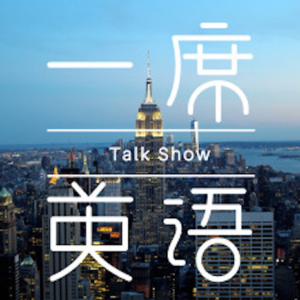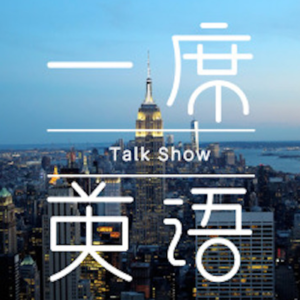主播:Flora(中国)+Erin(美国)
歌曲:Monster
巴黎奥运会期间,“饭圈文化”引发了人们的热议,今天,我们就来聊聊由奥运会引发的饭圈文化讨论。
01 何为“饭圈文化”?
“饭圈文化”(Fandom culture)的“饭”是英文单词fan(粉丝)的音译,所谓的“饭圈”就是一些特定的人群,他们devote themselves to supporting their favorite stars(全身心地支持他们最喜欢的明星),这些明星可能是athletes(运动员),singers(歌手)或者是actors(演员)。

Fandom culture很容易lead to intense rivalries(引发激烈的争议或对抗)以及significant social media influence(产生巨大的社交媒体影响力)。因为当粉丝们对明星的devotion(忠诚)turns into blind loyalty(变得盲目忠诚时),they will see anyone who stands in their idol’s way as an enemy(他们会把任何妨碍他们偶像的人当作敌人),这样的话会lead to hostility(引起敌意) rather than healthy competition(而不是健康的竞争)。
02 “饭圈文化”为何引起热议?
北京时间8月3日,我们的乒乓球运动员Chen Meng defeated her teammate Sun Yingsha in the women's singles final at the Paris Olympics(陈梦战胜了队友孙颖莎,在乒乓球女单决赛中成功卫冕冠军)。

然而,陈梦等来的却是铺天盖地负面的评价。During the match, many fans were booing when Chen lost points. 当陈梦失分的时候,很多人在喝倒彩。
boo /bu:/ v. 喝倒彩
Why don't they support Chen Meng? 为什么这些人不支持陈梦呢?AFP(法新社)的记者都一脸懵。原来,看台大部分的中国观众were fans of Sun(是孙颖莎的粉丝)。

按常理来讲,两名运动员都是中国队的,她们应该celebrate both of their incredible achievements(两者之中无论谁获胜都应该为她们祝贺)。 但因为这些粉丝are into Sun Yingsha(喜欢孙颖莎),they only see it as a win or lose situation for their favorite(他们只关注自己偶像的输赢)。所以当陈梦夺冠的时候,台下一片沉默。更让人意想不到的是,some supporters of Sun even posted aggressive comments on social media(一些孙颖莎的支持者在社交平台上甚至还发了一些过激的言论)。

Don’t put down others just to support someone you like. 不要仅仅为了支持你喜欢的人而把别人放在一边。
Some platforms have removed many of the inappropriate comments. 一些平台已经删除了许多不恰当的评论,有人甚至被criminally detained(刑事拘留)了。
detain /dɪˈteɪn/ v. 拘留

Cyber violence(网络暴力)的危害不容小觑,it can cause real harm to a person’ s mental health(它会对一个人的心理健康造成真正的伤害),can even lead to physical harm(甚至还会影响到一个人的身体健康)。希望大家都能speak kindly on the Internet,我们共同努力来maintain a good online environment(维护一个良好的网络环境)。
03 还有哪些运动员受了“饭圈文化”的影响?
其实不只是陈梦,樊振东和王楚钦这两位top Chinese table tennis players(中国顶级乒乓球运动员)have also been targets of this toxic fandom culture(也是深受“饭圈文化”的影响)。

比如说樊振东,因为粉丝leaked his personal information(泄露了他的个人信息),he had to retreat from social media(他不得不退出社交媒体)。这些粉丝甚至went after his family。Involving their family(把他们的家人卷入进来) and exposing private information (暴露他们的私人信息) is even worse, and definitely illegal(非法的)!
王楚钦也有这样的disturbing experience(让人不安的经历)。有粉丝会follow him(跟踪他)然后snap photos and sell them(拍照并出售)。他曾在深夜发文说:希望大家能respect each other's privacy(尊重彼此的隐私),keep our distance(保持距离),给他一些喘息的空间。

At its core, sports are about fair play, respect, and the joy of competition. 体育精神的核心是:公平竞争,彼此尊重,并享受竞赛的乐趣。当这些价值被破坏之后,体育精神本身也就变味了。
04 美国也有类似的“饭圈文化”吗?
在美国,他们非常强调individualism(个人主义),这就有时候会lead to extreme behavior from fans(导致一些极端行为) who see their favorite athletes as heroes who must always win(认为自己喜欢的运动员是战无不胜的英雄)。

Losing games is normal in competitive sports. 在竞技体育中,输掉比赛本就是非常正常的事情。Losing and winning are two sides of the same coin. 输赢本就是一个硬币的两面。We cheer for the winners and applaud the losers who struggle on. 我们为赢家欢呼,但只要是敢于拼搏,即使失败也值得我们的掌声。
运动员们都非常努力,applauding them for their effort and encouraging them to keep working hard(肯定他们的努力,并鼓励他们继续加油)至少是我们都能做到的。
05 怎么才能减少“饭圈文化”对竞技体育的负面影响呢?
首先,无论是对于运动员还是粉丝们,要接受winning and losing are both part of the game(输赢都是比赛的一部分),我们应该celebrate the effort and determination of all athletes(为所有运动员的努力和决心喝彩),而不只是为那些who come out on top(取得优异成绩的运动员而欢呼)。
要知道,competitive sports aren't just about winning games(竞技体育不仅仅是关于赢得比赛),更重要的要有sportsmanship(体育精神)的存在。

我们需要回归到the true Olympic values(真正的奥林匹克价值观)——understanding,friendship和fair play(公平竞争)。这创造了一个积极的环境,运动员可以focus on what they do best(专注于他们做得最好的事情)。
Whether you're cheering from the stands (站台) or watching from your couch (沙发), the way you support athletes and create a positive vibe (氛围) really makes a difference. You're helping to keep that Olympic spirit alive and strong (你正在帮助保持奥林匹克精神活跃和强大)! 作为看台或屏幕前的一名观众,也许你追星时的理性、营造的良好比赛环境也是在助推实践伟大的奥林匹克精神。




 432
432 1
1
